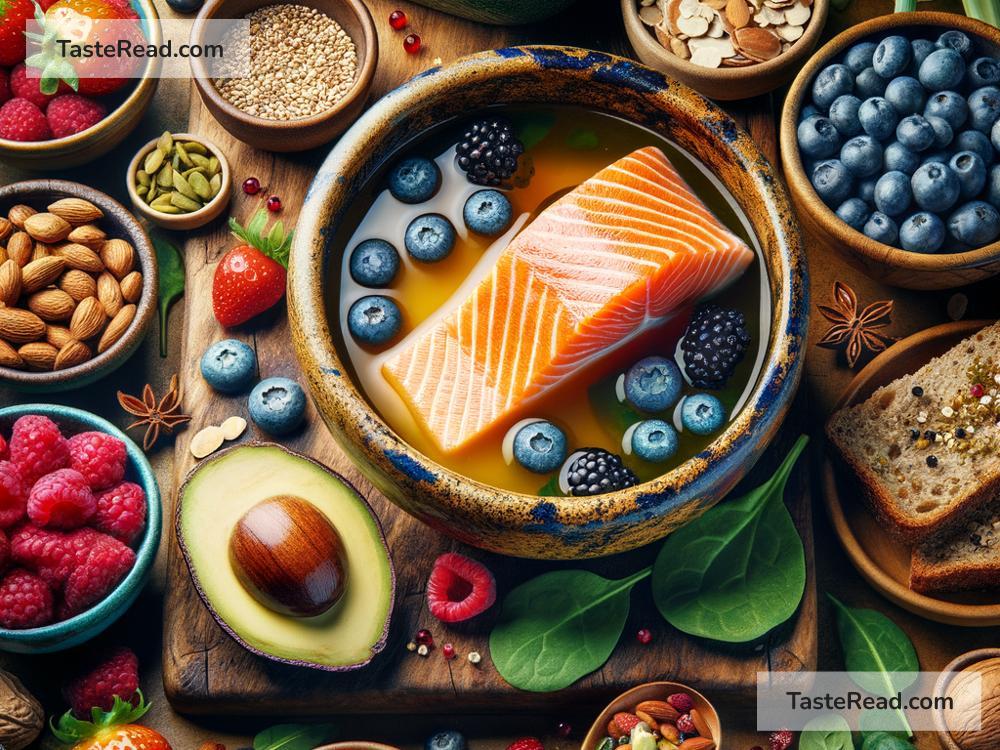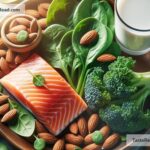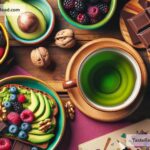Foods for Boosting Collagen: The Secret to Healthier Skin, Hair, and Joints
Collagen is a buzzword these days, and for good reason. It’s the protein that gives your skin its elasticity, keeps your hair shiny, and supports your joints. Think of collagen as the glue that holds your body together. As we get older, our body produces less collagen, which can lead to wrinkles, weaker joints, and even brittle hair. But don’t worry—eating the right foods can help boost collagen naturally and keep you looking and feeling your best.
Here’s a guide to the top foods for boosting collagen, written in simple English so you can make easy, healthy choices.
What Is Collagen?
First, let’s cover the basics. Collagen is a type of protein found in your skin, hair, nails, bones, and connective tissues. It’s responsible for keeping your body strong and flexible. Think of your skin when it’s smooth and firm—that’s collagen at work.
Unfortunately, collagen levels start to drop after your 20s. Things like aging, sun exposure, stress, and smoking can speed up this process. The result? Wrinkles, sagging skin, and stiff joints. But you can help your body make more collagen by eating the right foods.
Key Nutrients to Boost Collagen
Certain nutrients play a big role in producing collagen:
- Vitamin C: Helps your body turn amino acids (the building blocks of proteins) into collagen.
- Protein: Collagen itself is made of protein.
- Zinc and Copper: These minerals support the enzymes involved in collagen production.
- Antioxidants: Protect your existing collagen from damage.
- Omega-3 Fatty Acids: Help with the structure and hydration of your skin.
Foods That Boost Collagen
Here’s a list of foods packed with the nutrients your body needs to make collagen:
1. Bone Broth
Bone broth is one of the best sources of collagen. This comforting soup is made by boiling animal bones (like chicken or beef) for hours. During this process, collagen from the bones seeps into the broth. Drinking bone broth regularly gives your body a direct supply of collagen.
2. Citrus Fruits
Oranges, lemons, and grapefruit are packed with vitamin C, which helps your body produce collagen. Vitamin C is essential for turning amino acids into collagen fibers. Just one orange a day can boost your collagen production!
3. Leafy Greens
Spinach, kale, and other leafy greens are loaded with antioxidants and vitamin C. These veggies help fight free radicals, which damage collagen and speed up aging. Add some greens to your salad or smoothie for healthier skin and joints.
4. Eggs
Egg whites contain proline, an amino acid that’s a building block for collagen. Eggs also provide protein, which your body uses to make collagen. Start your day with scrambled eggs or add hard-boiled eggs to your lunch for a collagen-friendly meal.
5. Fatty Fish
Fish like salmon, mackerel, and tuna are high in omega-3 fatty acids. These healthy fats keep your skin hydrated and protect collagen from breaking down. Cook a piece of salmon for dinner once a week to give your skin a boost.
6. Nuts and Seeds
Almonds, sunflower seeds, and pumpkin seeds are rich in zinc and copper, two minerals that support collagen production. Snack on a handful of nuts and seeds during the day for healthy skin and strong hair.
7. Berries
Strawberries, blueberries, and raspberries aren’t just tasty—they’re packed with antioxidants and vitamin C. These nutrients help keep existing collagen from breaking down, while boosting your body’s production of new collagen.
8. Soy Products
Soy products like tofu and soy milk contain genistein, a plant compound that helps stimulate collagen production. It’s a great option if you’re vegetarian or vegan.
9. Tomatoes
Tomatoes are a good source of lycopene, a powerful antioxidant that protects collagen from damage. Add fresh tomatoes to your salads or make a tomato-based pasta sauce for a healthy dose.
10. Garlic
Garlic contains sulfur, a mineral that helps synthesize collagen. It also has taurine, which repairs damaged collagen fibers. Add garlic to your soups, stews, and stir-fries for a flavor boost and a collagen kick.
11. Chicken
If you’ve ever noticed the stretchy structure of chicken skin, that’s collagen. Eating chicken, especially skin-on or in a stew, offers a natural source of collagen for your body.
Lifestyle Tips for Boosting Collagen
Besides eating collagen-rich foods, you can take some extra steps to keep your collagen production high:
- Protect Your Skin from Sun Damage: Wear sunscreen, since UV rays break down collagen.
- Stay Hydrated: Drink plenty of water daily to keep your skin hydrated and plump.
- Quit Smoking: Smoking damages collagen and your skin in general.
- Eat Less Sugar: Excess sugar can break down collagen in your body.
Conclusion
Collagen is key to healthy, youthful skin, strong joints, and luscious hair. While aging naturally lowers your collagen levels, eating the right foods and taking care of yourself can help your body produce more collagen. Bone broth, citrus fruits, leafy greens, eggs, and fatty fish are just a few of the amazing foods that support collagen production.
So why not start today? Pack your meals with collagen-boosting ingredients and enjoy the benefits of glowing skin, stronger joints, and healthier hair. Small changes in your diet can make a big difference in how you look and feel!


